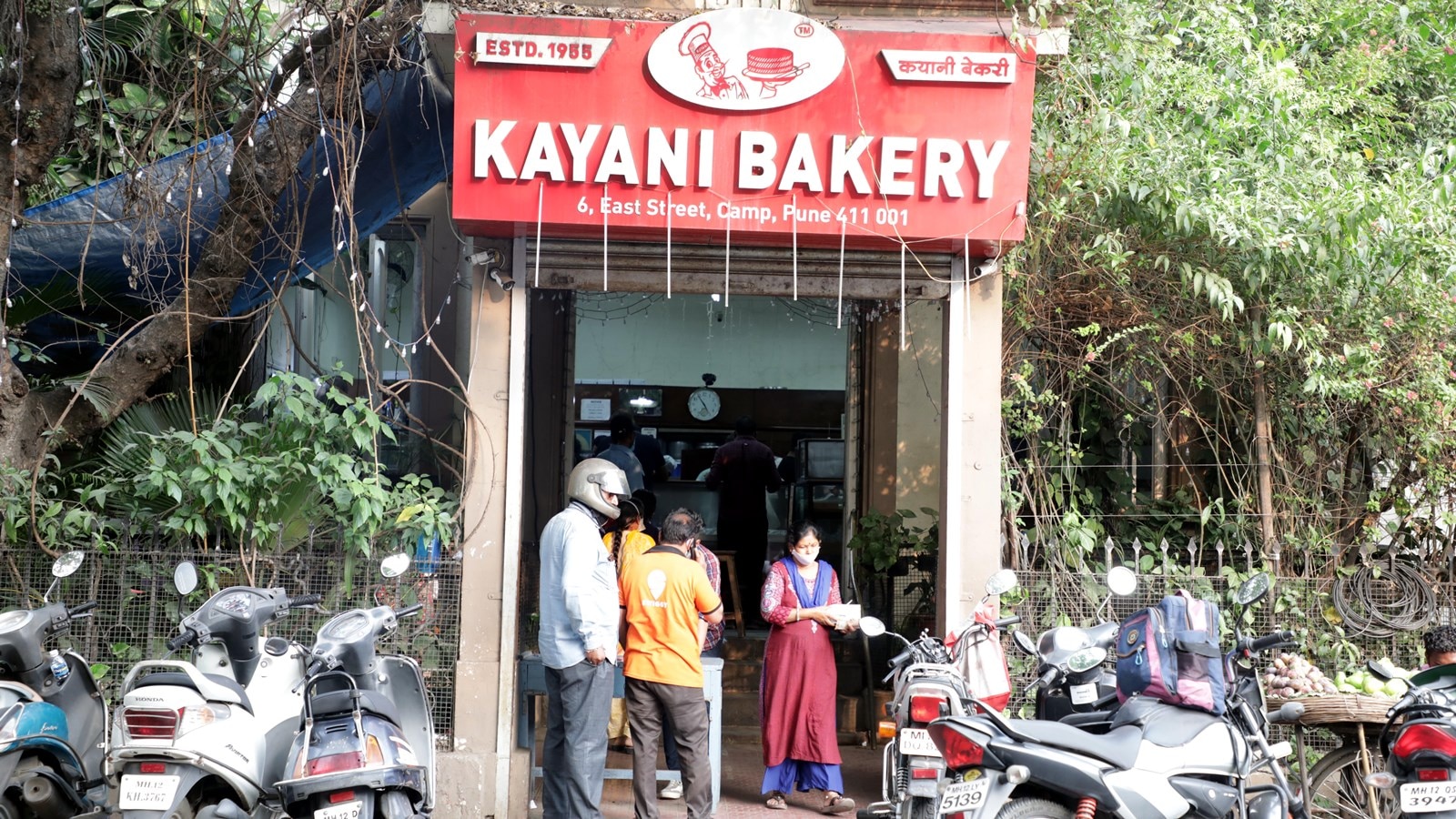
‘Andor’ Revealed a Path Forward for ‘Star Wars’
[This story contains spoilers for the season finale of Andor.]
When Andor was announced in 2018 , it was just one of a number of Star Wars series in the works for fledgling streaming service Disney+. Four years later, in an age of multiple Star Wars series arriving annually, season one of Andor managed to raise the bar for what a Star Wars show could be by carving out its own corner of the galaxy, one that always existed, but hadn’t been fully explored until now. It could also offer a path forward for Lucasfilm, by proving audiences will embrace storytelling that moves beyond the mythos of the Skywalker Saga.
Related Stories
Before the series, audiences knew Cassian Andor (Diego Luna) from Rogue One as the dedicated Rebel captain who gives his life for the one thing that could turn the tide of their fight: the Death Star plans. The Cassian we meet at the start of Andor is a very different kind of rogue. He’s selfish, pessimistic and wants nothing to do with either side of the brewing conflict. Over the course of Andor’s first season, audiences see the evolution of Cassian from a disenfranchised criminal to a man who looks more like the ruthless Rebel leader they remember. More importantly, viewers see what it took for Cassian to ultimately devote his life to the Rebellion — a decision that he would have scoffed at early on in the show. And while Star Wars always had the means for nuanced and complex stories, in peeling back the layers of the Empire’s oppression and the Rebellion’s sacrifice, Andor gets the franchise there in a way that previous projects never have.
In a franchise known for its historically righteous take on good versus evil — and how the former will always triumph over the latter — Andor uncovers a different kind of Star Wars story. Andor looks through the eyes of the unchosen ones — the people who live under the oppression of the Empire, day in and day out. The ones without connection to a Jedi or a Skywalker or a Solo. Through Cassian’s eyes, we see the Empire — and the Rebellion — for what they truly are. The Empire? A greater, more calculated evil than a gang of bumbling Stormtroopers. And the Rebellion? An organized effort far more complicated than just the “good guys.” They are willing to do whatever it takes, even if it means sacrificing their own goodness in the process.
At the close of the finale, Cassian propositions Rebel mastermind Luthen Rael (Stellan Skarsgard) with two options — kill him or let him join the Rebellion. It brings his character’s season one journey full circle, and inches him that much closer to the Cassian Andor that steals the Death Star plans with Jyn Erso (Felicity Jones).
Cassian doesn’t join up with the cause for the sake of goodness; he does it because it is necessary. At this point, he’s committed murder, pulled off a significant Imperial robbery and been thrown into a brutal labor prison. He’s led a mass prison breakout, later to find his friends at home suffering the consequences of his actions. It leaves Cassian with no other choice but to fight back. It’s a choice that feels real, the kind of breaking point that only surfaces after a life spent under the unrelenting thumb of the Empire.
“I’d rather die trying to take them down than die giving them what they want,” Cassian says to fellow inmate Kino Loy (Andy Serkis) in episode ten. As viewers, we know that Cassian ultimately does give his life for the Rebellion. That knowledge makes us root for Andor, knowing that he’ll one day become the hero of a greater story. But despite knowing his fate, knowledge that could have taken the suspense out of the series, the stakes remain high. It’s not just about whether Cassian lives or dies, it’s about the lives of the ordinary people around him, fighting for another day that they might not see.
With Andor, Cassian’s story levels the Star Wars playing field a bit. There’s more to the Galaxy far, far away than Skywalkers and chosen ones. In fact, there’s an entire world of people, slowly crumbling under a fascist regime that so desperately wants to squash any brewing rebellion, that the brutal measures it takes are what ignite the resistance itself.
“We need the Empire to help,” says Luthen in episode eight. “We need them angry. We need them coming down hard. Oppression breeds rebellion.” It’s a sentiment that seems harsh — Luthen is willing to let people die and suffer at the hands of the Empire in order to push the cause forward — and one that audiences certainly weren’t thinking about when they watched Luke triumphantly destroy the Death Star in A New Hope. As Andor so continuously reminds us, beneath the great victories lay the horrific costs it took to get there.
Revealed as the true mastermind behind the beginnings of the Rebellion, Luthen remains one of the more vital characters of the show, and perhaps one of the more crucial characters in Star Wars to date. In a past Star Wars story, a nuanced character like Luthen could have been framed as a villain. He’s ruthless, cruel, paints a menacing portrait, and can go toe-to-toe with the most extremist of rebels like Saw Gerrera (Forest Whitaker). But his character shows us the true work of making a successful rebellion. In order to create the military stronghold that Luke Skywalker joins up in Episode IV, Luthen had to lay the groundwork, sacrificing everything in his life in the process.
“I’ve given up all chance at inner peace,” Luthen says in episode ten. “I burn my life to make a sunrise that I know I’ll never see. And the ego that started this fight will never have a mirror, or an audience, or the light of gratitude. So what do I sacrifice? Everything!”

“Tyranny requires constant effort,” writes Karis Nemik (Alex Lawther) in his manifesto that Cassian studies during the season one finale. “It breaks. It leaks. Authority is brittle. Oppression is the mask of fear… Even the smallest act of insurrection pushes our lines forward. And then remember this. The Imperial need for control is so desperate because it is so unnatural.”
In Andor, audiences see the Empire in its full glory. And this time, there is no looming Darth Vader or cackling, force lightning-wielding Emperor Palpatine to be seen. This is the true portrait of the Empire in all its cold, calculated and oppressive ways. Through characters like the cruel and ambitious Dedra Meero (Denise Gough) or the obsessive and desperate Syril Karn (Kyle Soller), the franchise finally reveals the passion behind the Empire. These Imperial officers aren’t just blindly evil puppets of Palpatine. They believe in the mission of the Empire wholeheartedly — an idea more frightening than perhaps the threat of the Death Star itself.
In episode nine, Meero says that unlike her more simple-minded Imperial colleagues, she prefers “a more nuanced approach” in defending the Empire. For Meero, her career is at stake, and for that, she will risk anything. It’s a notion not too far off from that of freedom fighter Vel Sartha (Faye Marsay), rebel senator Mon Mothma (Genevieve O’Reilly), or even Luthen, himself. The Rebellion is up against not only the greater regime, but the inpiduals within who feel just as strongly as the rebels — not about freedom, but about power.
These concepts about tyranny, sacrifice and revolution could have caused Andor to collapsed underneath its own weight. And yet showrunner Tony Gilroy’s creative vision allowed Star Wars to feel more complete, more real and more accessible. Among the Luke Skywalkers of the world, there walk the Cassian Andors.

When Rogue One hit theaters in 2016, it achieved both critical and fan acclaim, marking itself as one of the most universally-loved Star Wars films to date. It was different, it was gritty, and everyone dies at the end. It made the events to come in Episodes IV, V and VI that much more meaningful.
Andor achieves a similar feat. Building off of Rogue One’s darker tone, the series not only adds greater context and significance to the events to come, but also sets the stage for more projects of the same timbre in the Star Wars galaxy. While there will always be a place for Jedi-centric stories or love for adorable Grogu-like creatures, perhaps Lucasfilm is ready to get ruthless, to take the bigger leaps or greater risks. Perhaps the Skywalker-focused movies or the Marvel Cinematic Universe formula isn’t necessarily the way forward. Perhaps the path ahead is a greater focus on unique standalone stories that enrich the universe in their own ways. As for season two, which will conclude the series, Gilroy is already at work on the 12-episodes that will bridge the gap into Rogue One.










































































